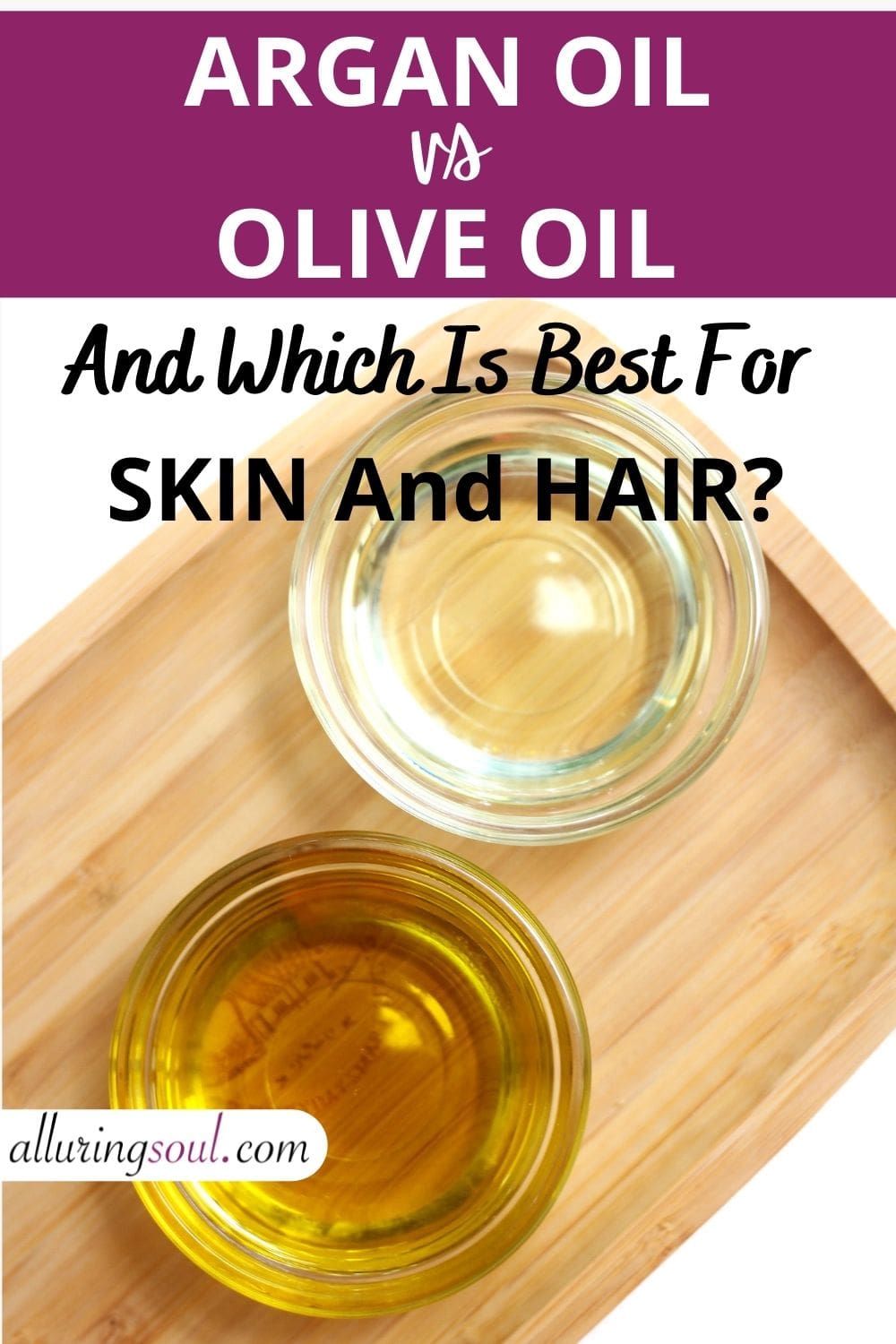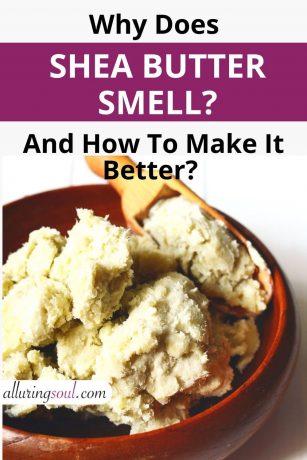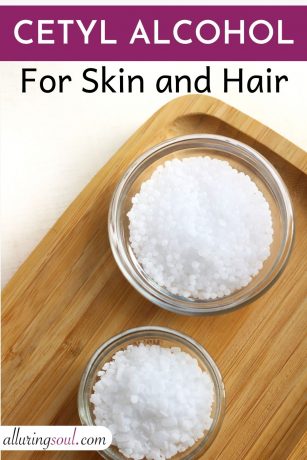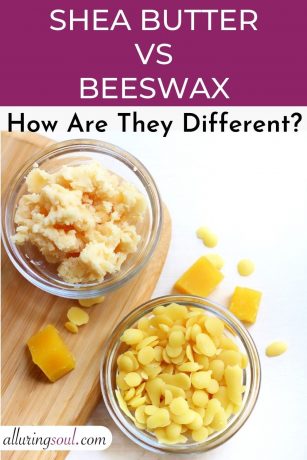Olive oil is less expensive than argan oil but for dry, damaged, dull skin and hair, argan oil is best to use. Argan oil is rich in vitamin E, D, linolenic acid, and oleic acid which strengthens the hair roots and prevents hair breakage while olive oil contains no vitamin D which makes it slightly less useful as a hair supplement oil.
Also, argan oil has a comedogenic rating of ‘0’ which means it can’t clog pores whereas olive oil has a comedogenic rating of ‘2’ which means it might have the chance of blocking the skin pores. Although olive oil is rich in oleic acid, argan oil has a proper balance of oleic and linolenic acid (omega fatty acids 6 and 9) and a much higher level of vitamin E which makes it a superfood for healthy skin.
Argan Oil
How Argan Oil Is Extracted?
Argan oil is plant oil derived from the kernels found in the nuts of the Argan tree found in Morocco and is one of the rarest oils in the world. The modern extraction method uses a press-extraction machine to obtain the oil from the nut.
What Are The Types Of Argan Oil?
Argan oil is found in two different types-
- Unrefined Argan Oil- It has a nutty and earthy smell to it and retains all of its hair and skin healing properties. However, they are more expensive and have a shorter shelf life as no chemicals or products are used here to act as a preservative. Also, it may contain some impurities.
- Refined Argan Oil- This version goes through a refining and filtration process to remove all impurities from it. But in doing so, it also loses some of its hair and skin healing properties. It may contain chemicals to strip the characteristic nutty smell from it.
Which Argan Oil Is Better- Most argan oil found in the market is refined. But, in terms of benefits, unrefined argan oil is the best one as they contain more healing and antioxidant benefits than the refined version.
What Are The Benefits Of Argan Oil?
- Prevents Stretch Marks – According to a study, argan oil has the potential to boost collagen, an essential protein required to improve the skin’s elasticity. Stretch marks can appear when the skin lacks that elasticity. Hence, argan oil effectively prevents the formation of further stretch marks and reduces the appearance of existing ones.
- Protects From Sun Damage- The antioxidants in Argan oil, such as Vitamin E and polyphenols, defend the skin cells from the free radical damages caused by the sun, including sunburn, premature aging, and hyperpigmentation. It does so by providing protection from the damaging ultraviolet rays.
- Suitable For All Skin Types- Argan oil is non-comedogenic as its comedogenic rating is ‘0’, meaning it does not clog pores and won’t cause any breakouts. It has moisturizing and healing properties which help to make skin soft and glowing.
- Promotes Hair Growth- Argan oil is rich in essential nutrients like Vitamin A, E, and D, responsible for providing hydration to the hair follicles and improving their health. This action stimulates new hair growth. Thus, use it consistently on your roots to promote hair growth.
- Makes Hair Soft And Shiny- Argan oil is an excellent source of antioxidants, essential fatty acids, and vitamin E. And these nutrients are known for helping to increase the hair’s elasticity and restore shine and softness to dry and damaged hair strands.
Olive Oil
How Olive Oil Is Extracted?
Olive oil comes from the flesh of a ripened olive fruit grown in the olive tree, also known as Olea europaea. Their color ranges from clear yellow to golden with a hint of green color. The fleshy part goes through a mechanical pressing machine to extract the oil from it.
What Are The Types Of Olive Oil?
The oil is usually found in four different types-
- Extra Virgin Olive Oil- It is the highest standard of olive oil. No chemical treatments were done during its production method, for which it retains all of its original content. It has its natural flavor and aroma. Also, this type has a lower level of acidity compared to the other variants.
- Virgin Olive Oil- It comes in an unrefined form and has a slightly higher acidity content than extra-virgin olive oil but lower than the other variants. And it also has a milder taste.
- Refined Olive Oil- This variant is also labeled as ‘pure olive oil’ or just ‘olive oil.’ It is of slightly lower quality and is extracted from black and ripe olive fruits. It goes through a refining process to obtain the oil.
- Cold-pressed Olive Oil- It means that the olive oil was pressed without high heat. It has a richer flavor as well.
Which Olive Oil Is better – Extra virgin olive oil is of the highest grade and is a better option than any other variant.
What Are The Benefits Of Olive Oil?
- Rich In Antioxidants- Olive oil is a powerhouse of antioxidants that helps to fight against free radicals that can potentially damage skin cells. It protects skin from environmental damage and irritation that can lead to premature aging and redness.
- Heal Wounds- The anti-inflammatory and antibacterial properties of olive oil have proven to have aid in wound healing. The component Triterpenes present in the oil helps to accelerate wound repair at the cellular level.
- Moisturizing- Olive oil is a natural moisturizer; it prevents water loss from the skin. The moisturization increases the water content of the skin that helps to improve its health and appearance. This quality also aids in keeping the skin soft and bouncy.
- Prevents Hair Damage- Olive oil has an essential role in protecting the hair strands from damage. The oil penetrates deeper into the hair and reduces the chances of more water getting absorbed into the hair. And this action prevents the swelling of the hair shaft, which can otherwise cause stress in the strands, thus, resulting in hair damage.
Table Showing Differences Between Olive Oil And Argan Oil
| ARGAN OIL | OLIVE OIL | |
| Extraction Method | Extracted from the kernels found in the nuts of the argan tree. | Extracted from the flesh of a ripened olive fruit grown in the olive tree. |
| Comedogenic Rating | ‘0’ (does not clog pores) | ‘2’ (may clog pores) |
| Vitamins Found | Vitamin E & D | Vitamin E |
| Oleic Acids | 40%-45% (Good for dry & aging Skin) | 55%-83% (Good for dry & aging Skin) |
| Linolenic Acids | 35%-40% (Good for oily and acne-prone skin) | 3.5%-21% |
| Absorption Speed | Fast to absorb into the skin (Non-greasy) | Very slow to absorb into the skin |
| Suitable For Skin Types | All skin types | All except oily and acne-prone skin. |
Which Is Best – Olive oil or Argan Oil?
In terms of skincare and haircare, argan oil is a better choice than olive oil. The former gets absorbed into the skin quickly, but the latter, with its large molecular structure, is heavier and won’t get absorbed that easily. Moreover, olive oil is comedogenic, meaning it can clog pores and cause breakouts. Also, argan oil is rich in vitamin D which helps to strengthen the hair roots, protects from hair breakage whereas olive oil contains no vitamin D.
In a nutshell, if you go through the percentage of nutritive values in both argan oil and olive oil, then you will observe that any oil is not completely superior or inferior to the other. For hair care and skin care, you will find olive oil is less helpful than argan oil.







No Comments